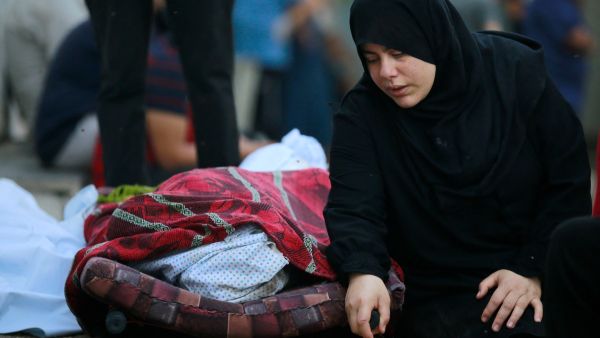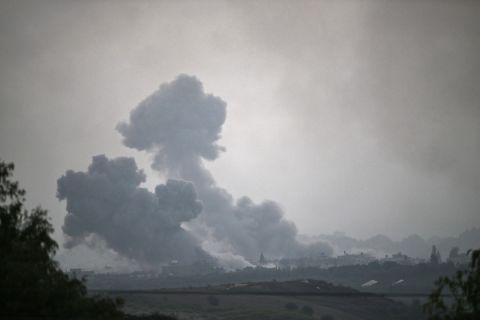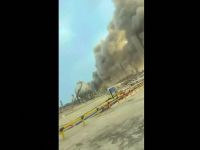ALB AWABA - As the Israeli airstrikes continue unabated in the Gaza Strip, the region's civilian population faces an array of dire challenges, from food and shelter shortages to issues of survival. Among the most severely impacted are pregnant women, who find themselves caught in the crossfire.
The relentless Israeli attacks on the Gaza Strip, which have not spared vital locations such as hospitals, schools, and places of worship, have had a devastating impact on expectant mothers, leading to premature births and miscarriages.
Tragically, the expectant mothers are often unable to reach hospitals due to the ongoing bombings. Islam Hamdan, a Palestinian resident of Beit Hanoun, shared the heart-wrenching story of his sister, who is currently trying to give birth.
Hamdan recounted their desperate attempts to reach multiple health centers and hospitals, which were fraught with dangers due to the ongoing bombings. He expressed the immense difficulty they faced while trying to navigate the nightmarish situation in Beit Hanoun.
The constant threat of Israeli bombardment has taken a significant toll on pregnant women, with Hamdan stressing, "Many women, unable to access hospitals due to the bombings, have experienced premature births and miscarriages."
Under normal circumstances, expectant mothers receive medical care at Shifa Hospital. However, due to the relentless Israeli bombardment, the hospital has been overwhelmed by an influx of wounded individuals, operating far beyond its intended capacity. Consequently, women are increasingly seeking the assistance of the less-equipped El-Hulu Hospital for childbirth.
Health Minister Miya Keyle issued a stark warning, stating, "We are sounding the alarm about an impending humanitarian catastrophe, as the primary generator at Shifa Hospital is set to shut down within hours due to a lack of fuel. Backup generators can provide electricity to only a few critical areas for a brief period."
Keyle further emphasized that 16 out of 35 hospitals in the Gaza Strip are currently non-operational due to the impact of the bombings and fuel shortages, with the remaining hospitals also at risk of suspending services within the next 24 hours due to fuel constraints.










